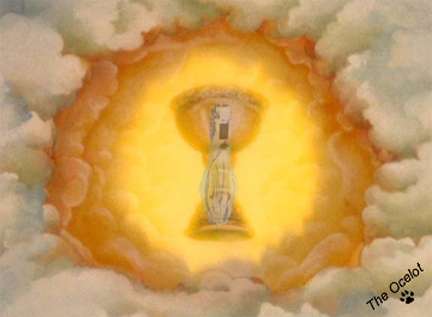
(If you have no interest in sociology, culture and advertising, you may want to skip this chapter)
What a Bobo is wasn’t too difficult to determine (although I owe a debt to Abe at Exhale Vapors for confirming my inkling that it is, in fact, a version of the Zmax V2), but that still left me with why it is a Bobo?
Why would it be called a Bobo? There had to be a reason behind it, especially when produced by a Chinese company deliberately using an Italian-sounding name. I often wonder how sigelei sounds when spoken with a Chinese accent, but I digress…
Why a Bobo? Why a Bobo? This is the sort of question I need answered for my little world to balance on its elliptic axis and my imaginary friends to go back to their tea party.
What a Bobo is wasn’t too difficult to determine (although I owe a debt to Abe at Exhale Vapors for confirming my inkling that it is, in fact, a version of the Zmax V2), but that still left me with why it is a Bobo?
Why would it be called a Bobo? There had to be a reason behind it, especially when produced by a Chinese company deliberately using an Italian-sounding name. I often wonder how sigelei sounds when spoken with a Chinese accent, but I digress…
Why a Bobo? Why a Bobo? This is the sort of question I need answered for my little world to balance on its elliptic axis and my imaginary friends to go back to their tea party.
And so my quest began.


Notably, do not, I must emphasize, do not Google "What does bobo mean." It is not helpful.
After that perplexing dead end, I focused my attention on specifically finding a connection between China and bobo. Searching various combinations of terms including those two words I learned some interesting facts:
1) Bobo’s Chinese Deli is a franchise spreading across the US.
2) "Bobo" is a Chinese term of endearment for a paternal uncle, but only if he is your father’s elder brother. An uncle younger than your father is called "Shushu."
4) Bobo Gan Tingting is a popular Chinese actress and rising star in entertainment circles across Asia. She won the Best Actress award in Vietnam's Golden Kite Awards in 2007, and the Sohu Autumn TV Season Best New Actress Award in 2011.
5) BoBo is a Chinese "boy band," who still seem popular even though their last album Let’s BoBo was released in 2010 and they haven’t had a hit since their The Big World album in 2008.


Bobo.................BoBo
At this point I got a bit distracted watching BoBo’s videos on youtube. The music isn’t horrific, as boy bands go, especially if you cut them some slack for trying to rap state approved lyrics in Chinese. I have no idea what they were singing about, but I feel safe in saying it wasn’t about the June Fourth Incident. After watching a couple of the videos I was left wondering how they managed to get the choreography approved since Falun Gong is somewhat frowned upon by their government.
Now where was I? Oh yes, the enigmatic Bobo.
So I searched and I quested and I searched some more…until....

The Cult of Bobo
In his bestselling book of "comic sociology," Bobos In Paradise: The New Upper Class and How They Got There David Brooks coined a new word, "Bobo," a portmanteau of bourgeois and bohemian to describe an emerging upper class - those who entwined the world of capitalist enterprise with the hippie values of counterculture.
Do you work for one of those visionary software companies where people come to work wearing hiking boots and glacier glasses, as if a wall of ice was about to come sliding through the parking lot? Do you have a really big kitchen and slate floors? Would you hire an interior designer for "Shabby Chic" decor? You might be a Bobo.
Brooks's inspiration for the book came when he returned to the US after living abroad and observed a noticeable change in class culture. Conservative upper middle class neighborhoods were suddenly filled with organic grocery stores selling basmati rice and vegetarian dog biscuits; lawyers were aspiring to be novelists; doctors were wearing earrings while attending to patients; and socialites with dirt under their nails were buying $75.00 faux authentic trowels to tend to arugula in their pesticide-free gardens. He even mentions finding a cappuccino café in the middle of Montana’s no man's land instead of a truck stop.
Basically, Brooks wrote about a society we rarely notice since we currently live in it (the book was published in 2000). So let’s go have a cup of Peet’s and a gluten-free muffin.
The Chinese, however, missed the sense of irony that accompanied such a cultural shift.

Author Jing Wang devotes an entire chapter of his book Brand New China: Advertising, Media, and Commercial Culture (Harvard University Press 2008) to "Bobo Fever."
"Who would have guessed," he wrote, "that a facetious celebration of the wedding between the 1960s counterculture and the 1980s over-achievement craze would trigger a Bobo fetishism in China?...In September 2002, the Chinese translation of the book arrived in major cities and became an instant best seller. Xiaozi, "petty bourgeoisie," a term trendy only a year before, became passé overnight. As 2002 drew to an end, the Bobo became a Chinese poster child without a hint of irony."
Pretty fascinating when you consider it wasn’t the combination of two classes, it was the creation of a pseudo-class from two classes that didn’t exist. The Chinese middle class wasn’t (and still isn’t) fully formed and expressing bohemian counterculture might get you arrested.
Wang continued, "[At the time] there was at least one website, Xici hutong (www.xici.net), that posted a Bobo page and provided advice on how Bobos were supposed to act, on where to find them and how to become one. After answering some multiple choice questions (e.g., "Are you satisfied with your life?" and "What do you think of Italian fashion?"), web surfers could assess their own potential for being a Bobo."
The term went on to claim the No. 3 slot on the list of top ten Internet search words in China in 2002.
What defines a pseudo-class arising out of a parody apparently over the heads of an entire country? Advertising of course! (The following are real excerpts)
.....Have you ever heard of "Bobos?"...a social group in search of freedom, challenges, and spiritual fulfillment. They are keen on creating the genuine meaning of life for themselves. Bobos have been looking everywhere for an ideal cell phone. Not until now did they spot the new Alcatel OT715...It combines the 1970s retro style of elegance and the cool attitude of the twenty-first century...
.....A Bobo is well-cultivated. His notebook displays a style of simplicity. Bobos love country folk, those simple-minded country people so serene and peaceful. Although they are poor, they live a rich life...Corresponding to the fundamental spirit of the Bobos is the simple but smart looking E100. It is clothed in simple dark blue, but its key board and LCD screen shines in fashionable silver...
.....In Bobo International, you get a perfect view of the mountains and hear the sound of the Xiang River gently stroking the banks. If you want to snack, turn on the electric burners. In a few minutes, you will be enjoying a drink with your beloved under the moonlight – over a few simple appetizers...
At this point I imagine I’ve bored you beyond endurance, provided you're still reading that is. I find this sort of stuff fascinating. If you do too, Wang’s paper A Brand New China, which was the basis for his book, is available online (as are passages of the book itself).
Yipee! I now know why it is a Bobo!
.....A Bobo demands the best from life. They are seeking products of exquisite taste and quality, but more importantly, of products that display character and an essence of free spirit.
Of course they do - and what better to call a mod shaped like a bowling pin, that's made in China by a company with a fake Italian name?

(Don't blame me, I told you to skip this chapter.)
The Bobo Affair (Chapter 5) "The Sigelei Bobo reviewed at last - almost..." | E-Cigarette Forum
